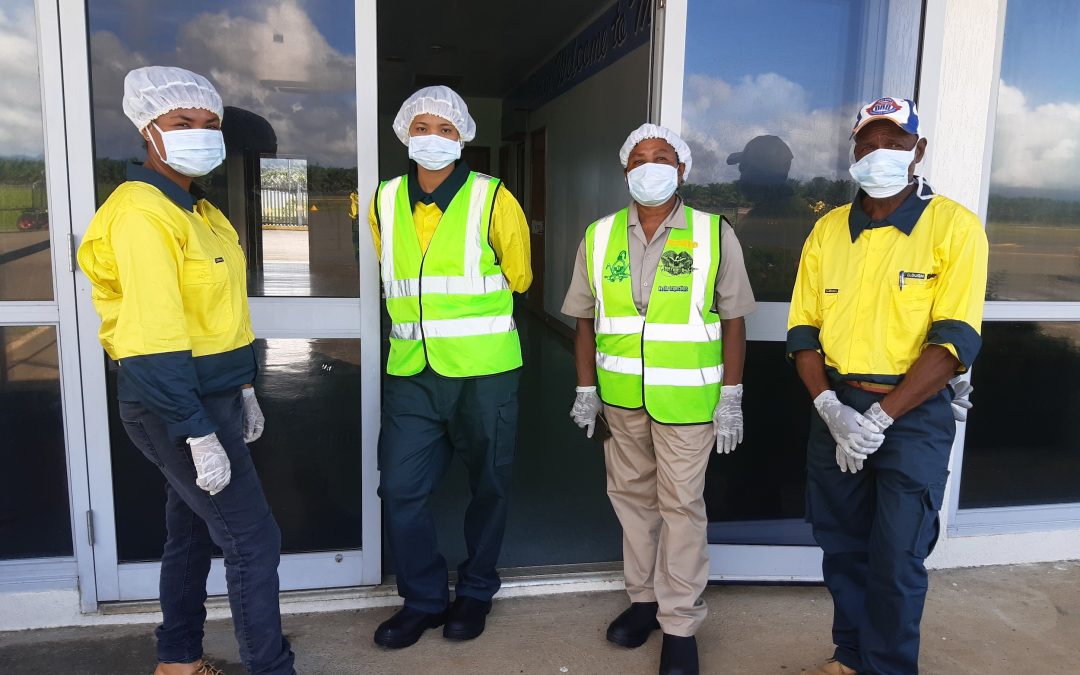When Dawaleia Norris (pictured above, first on left) completed a Master of Environmental Health with an Australia Awards Scholarship in 2019, dealing with a global pandemic was not in her plans.
Fast forward to today, and Dawaleia is at the frontline.
As a team leader for quarantine services at the Milne Bay Provincial Health Authority, Dawaleia works with colleagues and local communities to foster COVID-19 awareness, preparedness and prevention.
“My organisation is a leader for COVID-19 preparedness and response efforts in the province,” Dawaleia explains.
“We’ve conducted COVID-19 awareness campaigns with resources that we have produced for all districts, meetings with government and non-government partners and stakeholders, quarantine, surveillance and rapid response.”
“We’re also conducting logistics for medical supplies and working on improving our staff capacity through training. We’ve been working hard to ensure that our people are well and safe.”
This vital work might seem a long way from the halls of Flinders University in Australia, where Dawaleia undertook her master’s degree, one of more than 175 long-term Australia Awards Scholarships in health awarded to Papua New Guineans since 2012.
However, she sees a direct link between the scholarship experience and her contributions to PNG’s health and development today.
“I’m applying a lot of [the] coordinating, networking, collaborating, planning and organising skills which I learnt on scholarship,” Dawaleia explains.
“I’ve been organising meetings, briefings and conducting trainings for my team as well as the travel and shipping industry in my area.
“Our work with partners is essential and we have been working hard to provide them with valuable information on how to be more public-health conscious and focus on collective efforts for community health and wellbeing.”
And while the COVID-19 challenge continues, Dawaleia is optimistic about the way forward as people from all backgrounds and communities work together.
“My message is that ‘health is everybody’s business’ and during this challenging period, we all need to support each other and especially support our communities,” she says.
“There are many forms and ways of support and help that must be provided for communities. It is either support through providing for physical needs, social and welfare needs or providing for mental and spiritual needs.
“Identify these needs for those on the frontline as well as those who will be inequitably disadvantaged during these times and do whatever you can to support them.”
